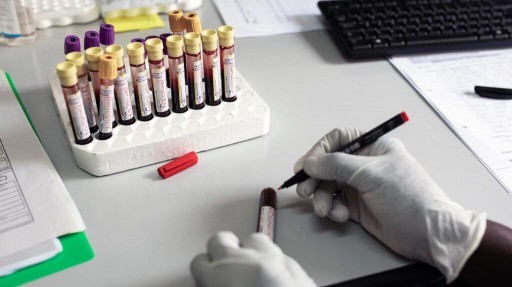- New research found that the time you eat meals might impact your risk of heart disease.
- There are a variety of factors that could impact this increased risk, like insulin sensitivity, blood pressure, and metabolism.
- Experts recommend opting for eating habits like the Mediterranean diet or DASH diet for heart-healthy options, as well as staying mindful of how later into the evening your last meal is.
What time you eat dinner might impact your risk of cardiovascular disease, a new study finds.
New research, published last month in Nature Communications, found that having breakfast after 9 a.m. and dinner after 9 p.m. is associated with a higher risk of cardiovascular outcomes, especially among women.
This research is the first of its kind to establish a potential connection between heart health and the timing of meals, explained Bernard Srour, PharmD, PhD, MPH, one of the study’s authors.
“Former studies have found possible links between skipping breakfast and a less favorable metabolic health,” he told Health. “But not much is known on the link between meal timing and cardiovascular diseases.”
Srour and his colleagues wanted to assess whether when we eat—not just what we eat— could have a meaningful impact on heart health, ultimately opening doors to prevention strategies.
The researchers gathered data from over 103,000 adults (the majority of whom were women) enrolled in the NutriNet-Santé study. This large French cohort has tracked subjects’ health habits since 2009.
The team then analyzed an average of 5.7 days of subjects’ 24-hour dietary records over a median of 7.2 years. Each additional hour of delay in eating the first meal of the day was associated with a higher risk of overall cardiovascular disease.
The same was true for each hour of delay in the last meal of the day. Compared to those who ate their last meal before 8:00 p.m., those who ate their last meal after 9:00 p.m. had a 28% higher risk of cerebrovascular disease.
Here’s how the timing of your meals could impact heart health, as well as ways to optimize your nutrition for cardiovascular wellness.

Getty Images / Maskot
How Meal Timing Affects Heart Health
According to Srour, the connection between meal timing and heart health likely has to do with the interplay between eating and circadian rhythm.
“Meal timing regulates the biological clocks that are involved in several circadian functions like regulating blood pressure, metabolism, and hormonal secretion,” he said.
Each of these factors plays a major role in heart health.
Our innate circadian rhythm has a powerful sway, for example, over insulin sensitivity—the degree to which the body can use sugar from food. Previous studies have found that the body is more sensitive to insulin in the morning than in the evening.
When this sensitivity decreases—causing insulin resistance—it can lead to cardiometabolic disorders like inflammation, endothelial dysfunction, and hypertension.
Each of these elevates heart disease risk.
By delaying morning meals, people could be setting themselves up for poor insulin uptake and, thus, heart health risks, Bhupendar Tayal, MD, a cardiologist and assistant professor of medicine at Case Western Reserve University, told Health.
Plus, eating later in the evening, when the melatonin (the sleep hormone) is at its peak, could prevent the body from metabolizing food efficiently, Srour said.
A 2020 study found that, compared to eating earlier in the evening, eating later at night was more likely to cause weight gain and impair fat metabolism. Since obesity is strongly correlated with heart disease, it’s no surprise that this factor might increase the risk of heart trouble.
Although the new study found a significant connection between heart health and meal timing, the research isn’t without a few limitations. It’s important to note that its findings show a correlation, not necessarily causation.
Some confounding factors could also complicate the study’s results.
Subjects who ate later at night also exhibited a variety of additional less-healthy behaviors than their earlier-dining counterparts. They were more likely to smoke, drink more alcohol, have more episodes of binge drinking, and have later bedtimes.
It’s possible that these tendencies, not just their later dinnertime, contributed to their greater risk of heart disease.
Eating an Early Breakfast May Reduce the Risk of Type 2 Diabetes
Timing Your Meals for Optimal Heart Health
There isn’t a one-side-fits-all approach to meal times, but Srour said his research indicates certain patterns may be more heart-healthy than others.
“Our study shows that it could be beneficial to eat early in the morning and stop early in the evening to ensure a long enough nighttime fasting duration,” he said.
However, he explained that though this could be optimal for heart health, more research is needed to confirm cardiovascular outcomes.
According to Tayal, it’s also important to eat consistently.
“Skipping meals, specifically breakfast, is not advised as it leads to increased obesity,” he said.
Similarly, he added that eating late at night has been correlated with increased rates of obesity, which can increase the likelihood of developing heart disease.
“Our metabolism is low late in the evening because of increased melatonin levels,” he explained. “The ideal time for eating, in my opinion, is an early breakfast (depending on when you wake up) and evening meal usually at least three hours before bedtime.”
Eating Right for Your Heart
Besides tweaking the timing of your meals, for heart health, it’s smart to focus on the contents of your plate.
Tayal recommends a diet rich in fruits, vegetables, whole grains, nuts, and fish (such as the Mediterranean or DASH diet) is best to support cardiovascular health.
“Avoiding food containing high sodium and reducing alcohol intake is also very important,” he added.
The American Heart Association’s recommendations for a heart-healthy diet run along similar lines, emphasizing minimally processed foods, limited sugars, low-fat dairy, whole grains, healthy proteins, and plenty of fruits and veggies.
Even if the occasional delayed breakfast or late-night dinner slips into your schedule, sticking mostly to these foods will go a long way toward protecting your cardiovascular health.
Eat More of These 6 Foods to Lower Your Risk of Heart Disease, New Research Says








